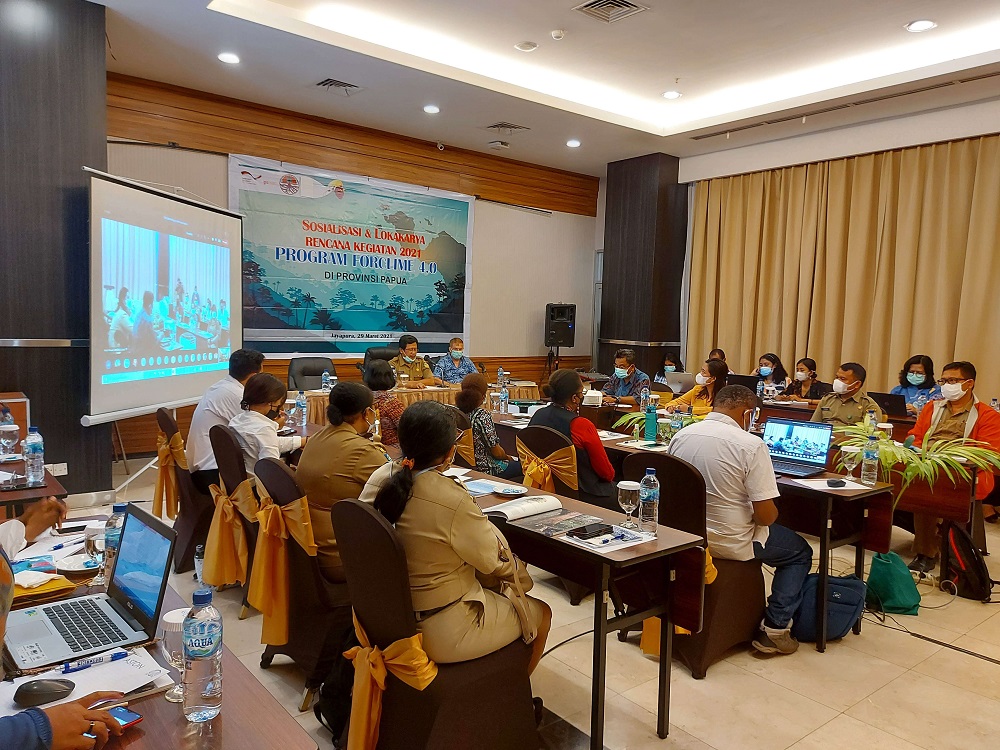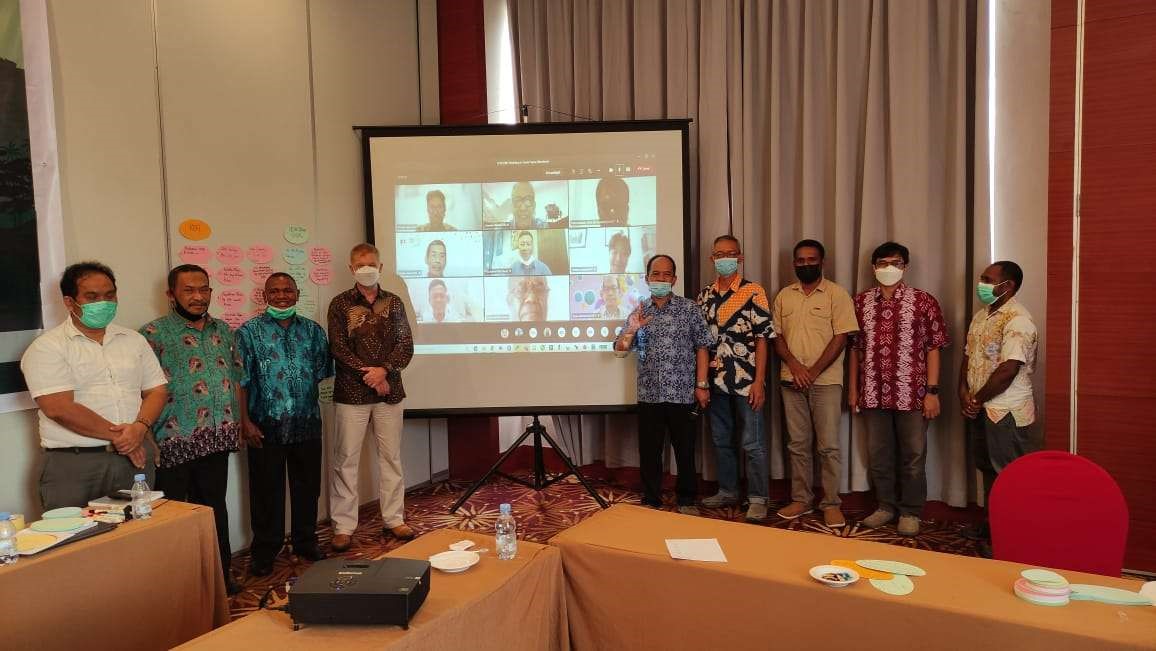FORCLIME
Forests and Climate Change ProgrammeTechnical Cooperation (TC Module)

Select your language

Aiming to collect information from the relevant stakeholders in Papua province for the purpose of preparing the annual workplan, FORCLIME continued its introduction session in Papua province through a planning workshop in Jayapura on 29 March 2021. Similar workshop has been conducted in Manokwari, West Papua a week before. The event that opened by Mr. Estiko Tri Wiradyo from the Forestry and Environment Service of Papua Province, was attended by 53 participants represented local universities, development partners, provincial government, local NGOs. Results from planning workshops in Manokwari and Jayapura will be formulated as the basis for preparing annual work plan as guidance for FORCLIME to conduct its activities in 2021 at both provinces, Papua and West Papua. Development of annual workplan will involve relevant partners at provincial and districts levels.
For more information, please contact:
Mohammad Sidiq, Papua Coordinator and Strategic Area Manager for Sustainable Forest Management

Following up the kick-off meeting of FORCLIME 4.0 at the beginning of the year, the Planning Bureau of the Ministry of Environment and Forestry (MoEF), as the Project Executing Agency of FORCLIME, introducing FORCLIME 4.0 to the stakeholders of West Papua on 25 March 2021 in Manokwari, West Papua province. Objective of the meeting was to collect information from relevant stakeholders for the purpose of preparing FORCLIME’s annual workplan, which then will be discussed with project partners at the provincial and district levels. Main topics during the meeting were problem tree analysis of forest management units (KPH), social forestry and biodiversity conservation, and identification of relevant activities which will be included to the annual workplan preparation. The meeting, which conducted mixed online and offline, was attended by 43 people representing the MoEF, the West Papua Forestry Service, provincial government (i.e. Regional Research and Development Agency-Balitbangda), development partners, local NGOs, local universities.
"The planned programme activities of FORCLIME 4.0 are corresponding with the West Papua KPH work plans, including KPH Tambrauw", said Petrus Tawer, the Head of KPH Tambrauw.
Similar meeting will be conducted in the following week in Jayapura for the relevant stakeholders in Papua province.
For more information, please contact:
Mohammad Sidiq, Papua Coordinator and Strategic Area Manager for Sustainable Forest Management
To support sustainable gender mainstreaming in national development goals, the Ministry of Environment and Forestry (MoEF) is working with stakeholders to continue to step up efforts and implement strategies for incorporating gender mainstreaming into the forestry and environment sectors.
This includes providing gender mainstreaming (PUG) training and information for policymakers. The objective is to integrate gender components into the development agenda and government institutions’ capacity-building activities. This is in line with the Government of Indonesia’s commitment to achieving the Sustainable Development Goals (SDGs), particularly Goal 5 on gender equality. Implementation of gender mainstreaming will contribute to reducing gaps in access, participation, control, and development benefits between women and men.
To make information more readily available, MoEF launched the Gender Mainstreaming Learning System (SRAGEN) at the end of March 2021. SRAGEN is a digital platform consisting of various policy documents, learning material, activities and agendas to support gender mainstreaming. Information is disseminated through MoEF’s Gender Mainstreaming website, http://pug.menlhk.go.id/, and its social media channels, such as YouTube (insert link: https://www.youtube.com/channel/UCAbI7LKONGixYlSveodH6aA), Instagram and Twitter (@gender_klhk). This ensures that both internal and external stakeholders of MoEF can easily access gender-related information.
MoEF’s development partners are supporting its goal to integrate gender mainstreaming components into policies, planning, programme implementation, monitoring and evaluation. Its partners include the Forests and Climate Change Programme (FORCLIME) and Climate Smart Land Use in ASEAN (CSLU) project – which are funded by the German Federal Ministry for Economic Cooperation and Development and implemented by the Deutsche Gesellschaft für Internationale Zusammenarbeit (GIZ) GmbH – as well as various other institutions such as the Multistakeholder Forestry Programme Phase 4 (MFP4).
For more information, please contact:
Zahra Mutiara, Advisor, CSLU
Edy Marbyanto, Strategic area manager for Human Capacity Development


